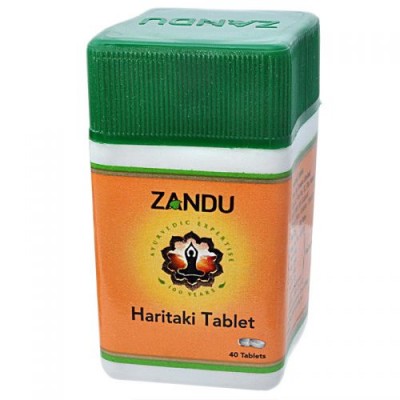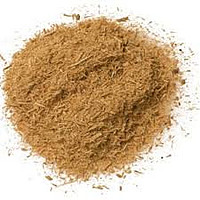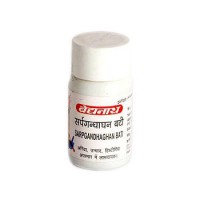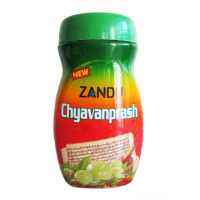Haritaki, 40 tablets, Zandu
Haritaki (Terminalia chebula), although it has a very astringent and unpleasant taste, is one of the most important plants in Ayurveda, if not the most important. It has a rejuvenating effect on Vata, regulates Kapha, and only excites Pitta in excess. It nourishes the brain, regulates the function of the colon, and, depending on the dosage, can relieve both constipation and diarrhea. It improves digestion and assimilation of food, voice and vision, promotes longevity. It enhances intellect and endows wisdom.
Haritaki has five out of six possible tastes (excluding salty). It increases lifespan, rejuvenates the body, is the best tonic and stimulant without side effects. It helps burn Ama, no matter how deeply it has penetrated the body, balances the body, slightly relaxes. In summer, it is best consumed with kefir or yogurt, in spring - with brown sugar, and in winter - with ginger.
Sharpens vision, treats diabetes and skin diseases.
Nourishes the brain and nerves, endows energy of pure consciousness.
Haritaki is an effective astringent remedy, used as a gargle for superficial mucosal manifestations. Regulates the function of the colon. Haritaki contributes to strengthening prolapsed organs, normalizes secretions in excessive sweating, cough, spermatorrhea, menorrhagia, and leukorrhea. Reduces accumulations and stagnation of Vata. It is one of the components of the famous composition "Triphala".
Haritaki is probably the most interesting plant on Earth. It is called the "king of all medicines". It is said that when Eastern healers hear about this plant, they are filled with a trembling of delight. "Haritaki" literally means - "a plant that steals diseases". Ayurvedic canons state that haritaki can cure a hundred ailments. In the treatise "Madana-pala-nighantu", haritaki is compared to a mother: "Just as a mother cares for a child, so haritaki cares for a person. But a mother may sometimes get angry, haritaki will never harm those who take it..." In Ayurvedic and Tibetan medical treatises, there are many legends about the origin of haritaki. It is believed that the seven types of haritaki are seven drops of nectar that fell to Earth from the mouth of Vishnu (the Supreme). In another text, it is said that the haritaki forest grew in the place of the lovemaking of Varuna (the god of water) and Bhumi (the goddess of the Earth).
Although all parts of the plant have a healing effect (roots eliminate bone diseases, stem - muscles, bark - skin, branches - vessels, leaves - reproductive organs), Ayurvedic doctors mainly use the fruits of the plant, as they normalize the function of the neuroendocrine system and all vital organs.
Indications: cough, asthma, hoarseness of voice, hiccups, vomiting, hemorrhoids, diarrhea, poor digestion, bloating, parasitic infections, tumors, jaundice, diseases of the spleen and heart, skin diseases, itching, edema, nervous disorders
Usage: 1 tablet twice a day.
Contraindications: pregnancy, dehydration, severe exhaustion or debilitation, very high Pitta.
Composition: Terminalia chebula.
Manufacturer: Zandu, India.
Form of release and quantity in packaging: tablets, 40 pcs.
Send us a message on WhatsApp at +39335474980 to check product availability, delivery times, and receive payment details.
You can pay for your order via PayPal, bank card, or bank transfer. Payment details will be sent to your phone number during the order process.
Our store ships orders within 2–3 business days after order and payment. Since the order is shipped from abroad, delivery may take from a few days up to two weeks. You can confirm the delivery date during or after placing your order.
You will receive your order via courier delivery to your specified address or at a post office.
Shipping within Italy to a post office — €9.90 for up to 3 kg.
Shipping within Italy by courier to your address — €12.40 for up to 3 kg.
(Please provide an address where someone will be available to receive the parcel during business hours — giorni feriali.)
For orders of €120 or more, delivery within Italy is free.
Shipping costs to other countries are calculated separately during the order process.
For orders of €120 or more, delivery is free.
Items received from a courier or post office are not eligible for return.











